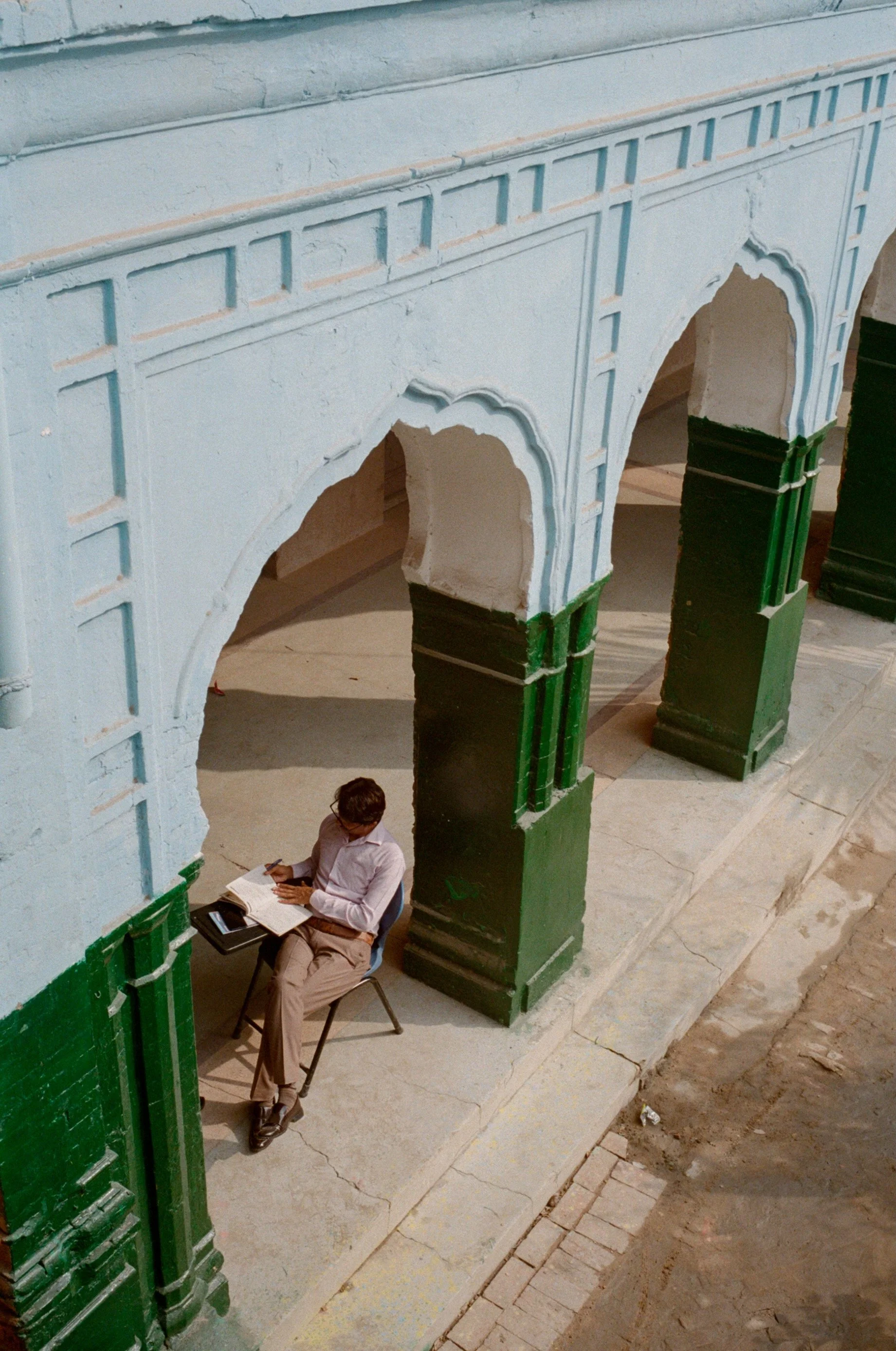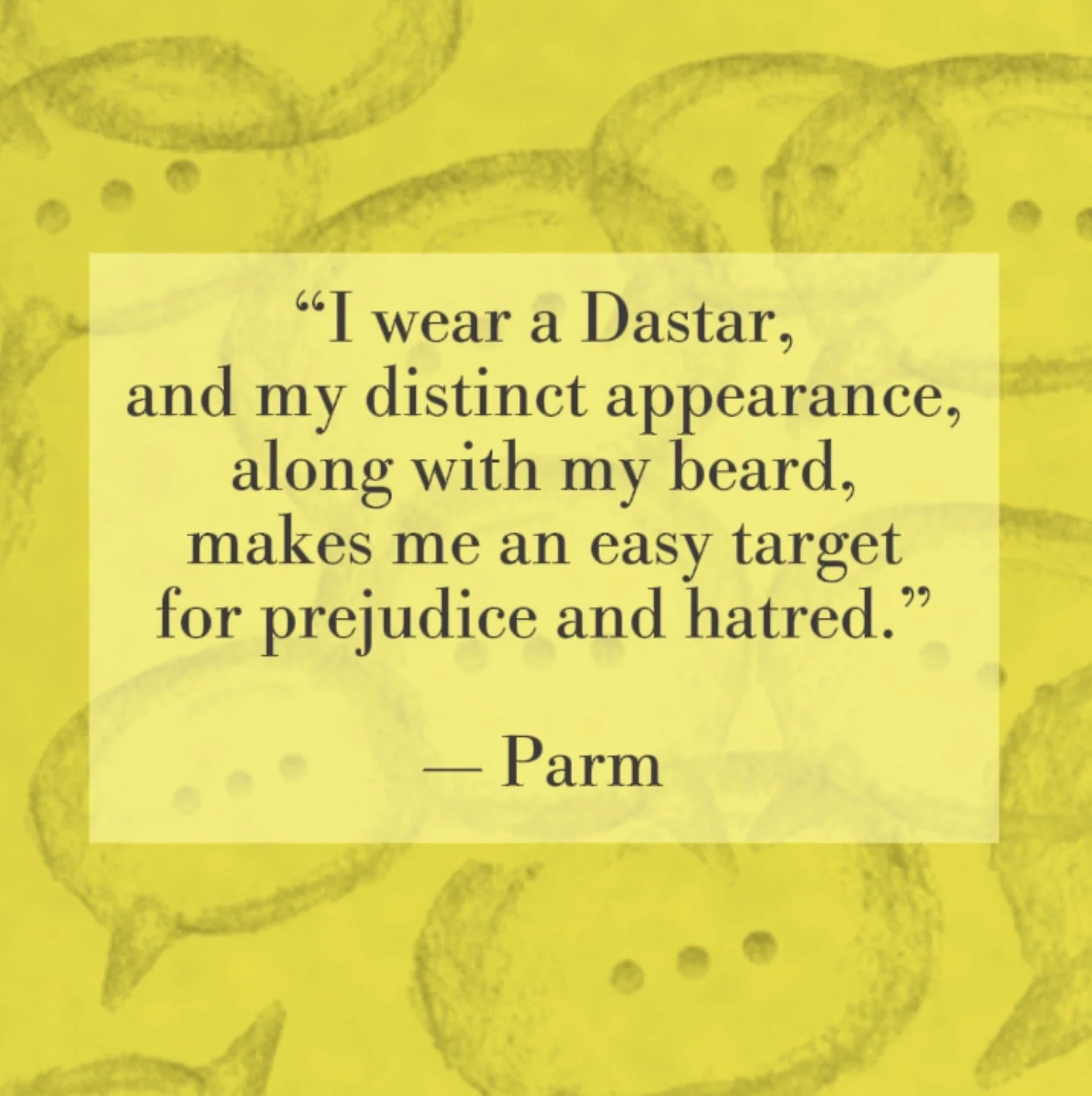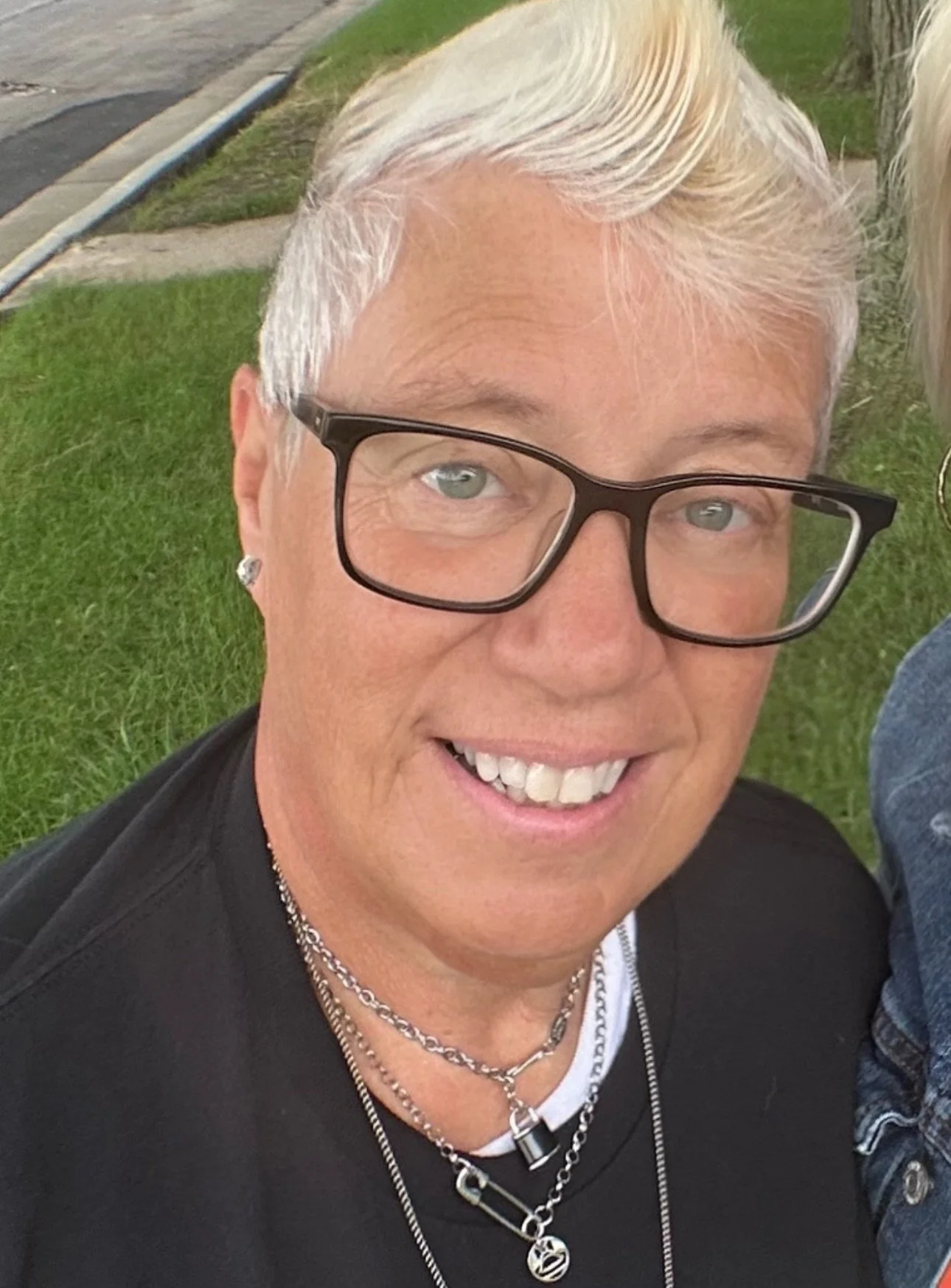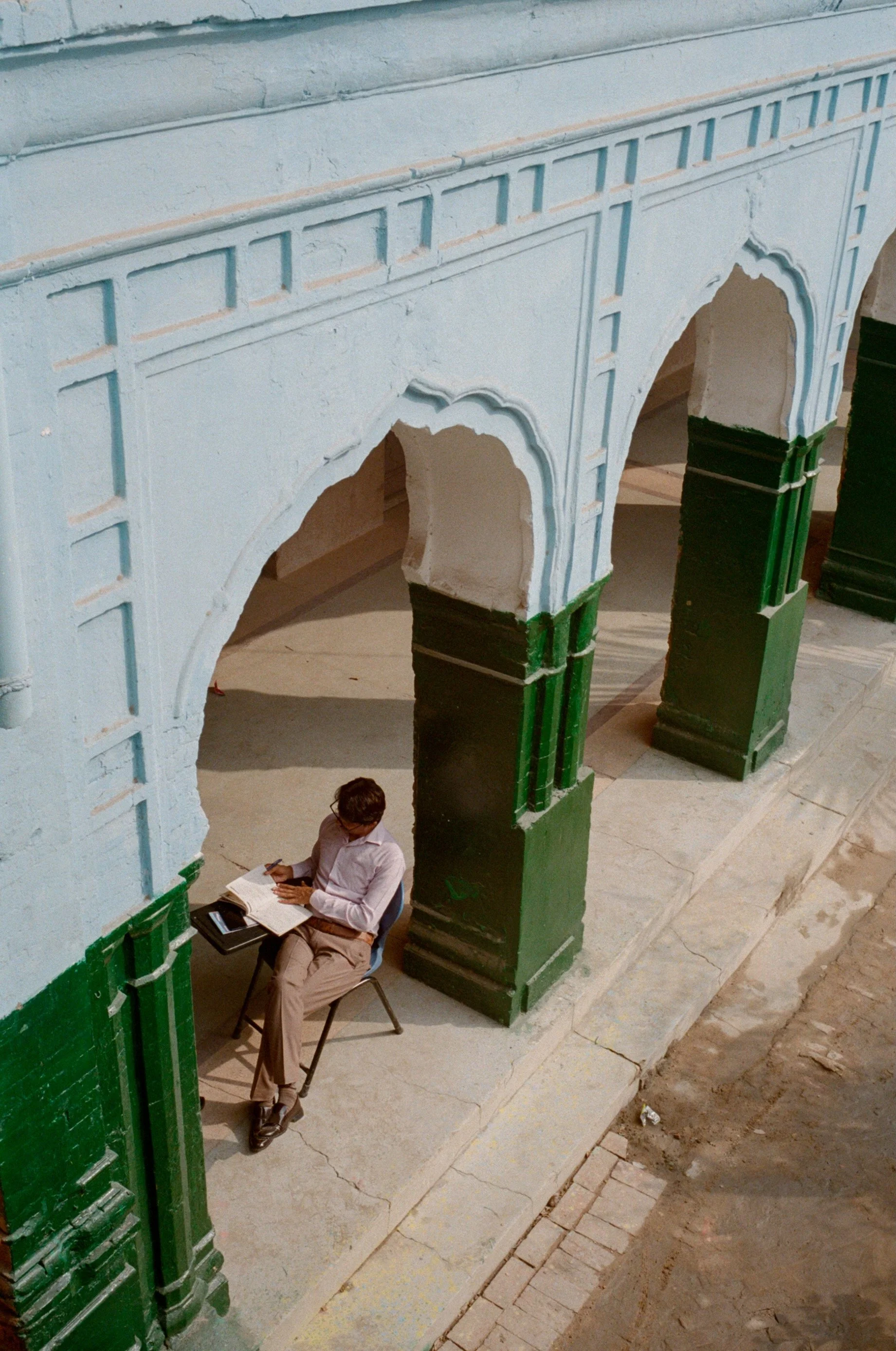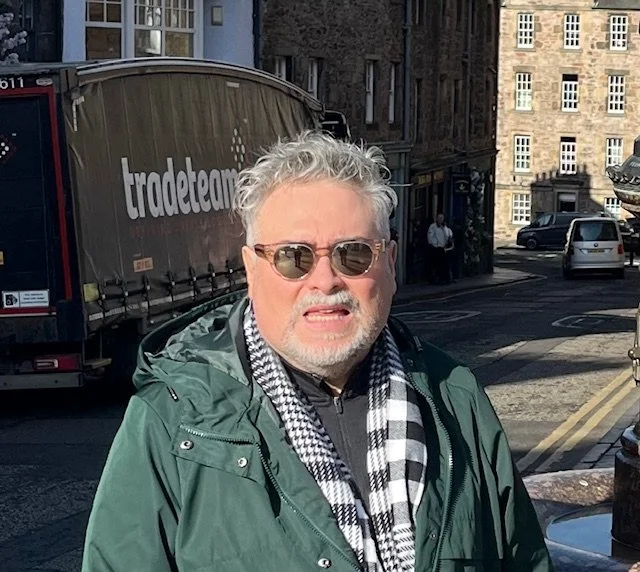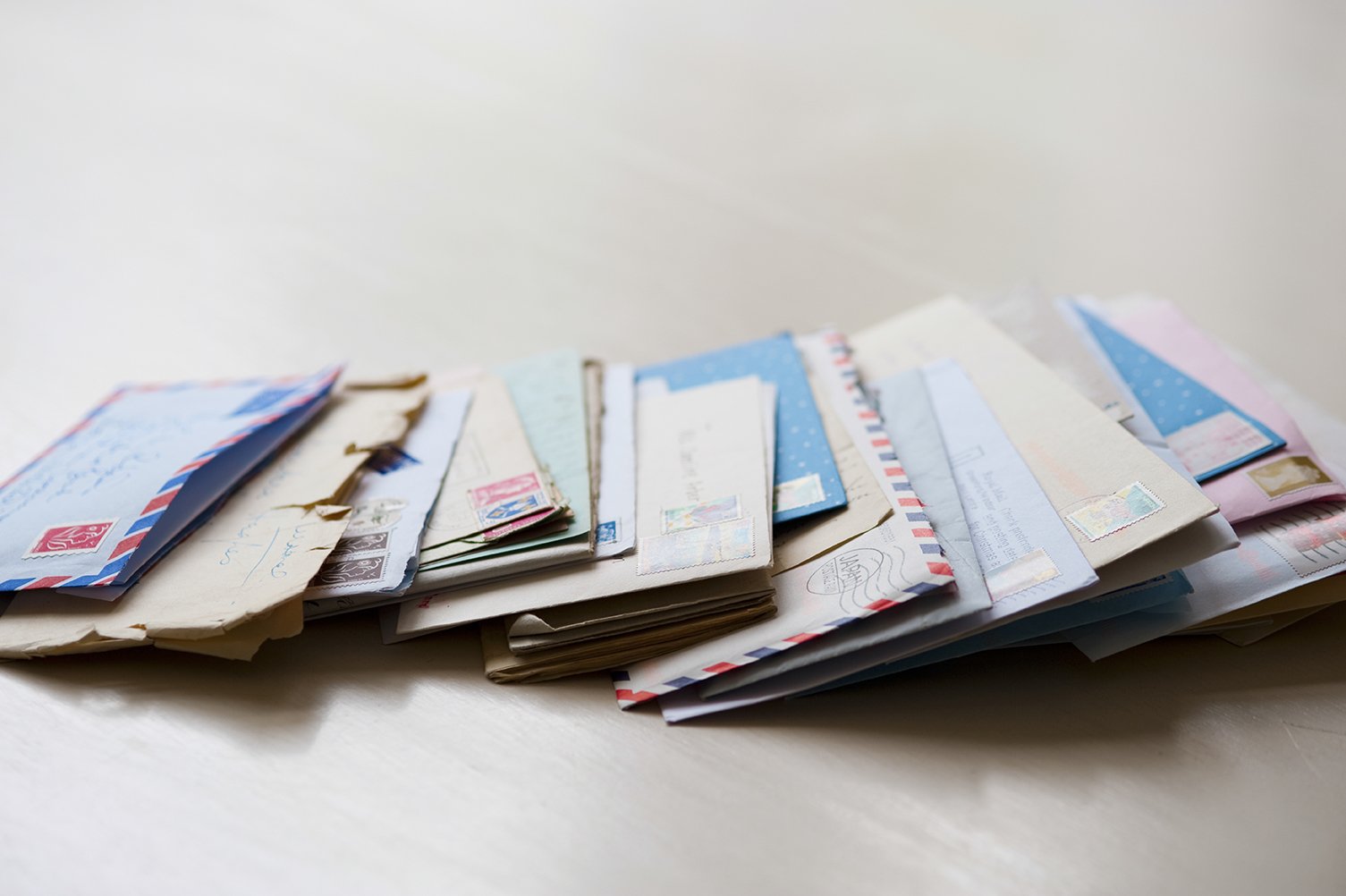
You’ve Got Mail
You’ve Got Mail
Every neighbor has a story. Get up close, read their words, and see your neighborhood in a new way.
“The most basic of all HUMAN NEEDS
is the need to understand and be UNDERSTOOD."
—Ralph G. Nichols
Penny
-
I’d love to hear about the grandparents in your life—whether they were your biological grandparents or other grandparent figures who played a meaningful role. What did you call them? What were they like?
I had one grandmother (my mom’s mom) and a grandfather and grandmother (my dad’s parents). My “PaPa” died when I was five, and I have just fleeting memories of him. I remember him chasing my brother and me around the house sticking his false teeth out at us. It is such a fun memory of his playful side. I also remember him riddled with cancer and a broken arm sitting in a wheelchair at my Aunt Cheryl’s wedding. I was a flower girl. He smoked a couple of pack of unfiltered Camels every day and had an aggressive form of lung cancer. He died at 63, which made my dad believe he would also die at that age. The weird thing is, my PaPa’s brothers (three of them) also died at 63. I can see why my dad felt this was his destiny as well! My mom’s dad died when she was 15, so she had some significant trauma around his absence in her life. He died on the operating table due to heart disease. She talked about him fondly, and referred to a story of him selling his Calvary boots in order to buy her and her sister Christmas presents one year. She wanted to emulate his life by being self-sacrificing and compassionate. My grandmother (Nanny T.) was my mom’s mom and a very proper lady. She was widowed young, and she made her from being a one-room schoolteacher to a buyer at a Bergner’s Store to an executive assistant at Prudential Insurance Company where she retired at 65. She was independent, smart, and consumed with doing the right thing. She attended church weekly, was in the women’s club, and made food for the housebound or sick. She was critical of me from the time I could remember, because I wasn’t the type of girl that she had hoped for. I was obviously a tomboy, and she wanted a demure, sweet, quiet girl, so I was often compared to a cousin’s family who had girls that fit that description. I don’t think she meant any harm, really, and I still looked forward to our Sunday dinners at her house and watching Lawrence Welk with her. I took care of her when she had surgeries, as my college was just a few miles from her house and my mom was still working. My dad’s mom (Nanny R.) could not have been more different. She was a foiksy woman, a registered nurse, who worked at the rural doctor’s office for many years. She took care of us when we had to stay home from school sick, and her house was a gathering place for us six cousins and family holidays. She went on camping trips with my family and was always included in Sundays at my other grandmother’s house. She baked from scratch, made great homemade everything. She sewed me an outfit that I absolutely loved. My fondest memory of her was walking home from a church revival and the moon was shining bright. She was holding my hand and we were walking back to my house. We talked about how lucky we were to be alive and to enjoy this beautiful evening and know that we were loved unconditionally by God. I get teary-eyed still thinking about it. She died a heart failure after a long battled with dementia. I think she was 83. My Nanny T. had a series of strokes and eventually died from a massive one. Both were in nursing homes at the time of their deaths. I think my mom’s mom died at 84. Both women were incredible in their own right, and I valued my time with them. Both wished I was more “girly” and both compared me to a standard that I was never going to meet, but overall, they never rejected me, even when I came out at 18. I told both grandmas and both said, “Love who you want, but just be happy.”
-
What is a memory from childhood that always makes you smile? Maybe it’s a favorite game, book, or TV show. It could be a birthday party, a moment you were proud of, or anything else that brings back a happy feeling. I’d love to hear what stands out to you.
This is a bit weird, but I loved any and all books about being an orphan. I loved my parents very much, but I grew up in the 60s and 70s and television was full of hardship stories that somehow resonated with me. Maybe it was past life stuff, but reading Oliver Twist, Huckleberry Finn, Tom Sawyer, and The Box Car children opened up a world of overcoming and making something out of nothing that appealed to me. I also think those books, in particular, were some of my most precious possessions, because my dad got them for my by drinking an extraordinary amount of coffee. If you bought these particular cans of coffee, you got a free Illustrated Classic book. My dad was the only person in my family to drink coffee, so he would drink a ton of coffee when a new book offer came around. Owning books was my pride and joy, and he loved being able to provide that for me. I would sit on our porch or head down to the creek and read under the bridge during the summer. I loved those days. My mom would pack me a lunch, and I would take off with my book and a notebook for the day. I also loved The Waltons and Little House of the Prairie for the same type of vibe. Hardship to triumph, that’s my jam! I also have to say that most of my fond memories are focused on sports and reading/writing. I loved all sports, and most of my happy times were spent on the ball field or the court through college.
-
This next question is a bit deeper, and you’re welcome to answer it whatever way feels right—there’s no right or wrong. Have you ever felt unheard, unseen, or judged—when people made assumptions about you before really knowing you? Maybe it changed how you saw yourself or how you moved through the world. Is there a story you’d like to share?
This is absolutely true. I was a lesbian from a rural area in Central Illinois whose family had never produced a college graduate. I wrote poetry from an early age, and loved to read everything I could get my hands on. We struggled financially all of the time, and had to rely on food banks and people’s good nature from time to time. I had no idea how to get to college other than to play sports to the best of my ability and get decent grades. People from my high school did not go to college unless it was junior college, and I wanted to go to a 4-year college. I received a scholarship to college, and I was going to live at home to save money. I was playing volleyball, basketball, and track (I couldn’t play softball, because I had played professionally for a bit), and I was double majoring and minoring. I was an English major, and I was a fish out of water with that group. I had the grades after my freshman year and a publication of two poems, so I applied to be in the honor society. You had to interview with the peer board and two professors. I had never felt so out of sink with a group in my life. They made me feel underqualified and out of my league in every sense of the word. I felt belittled because of my rural upbringing, small high school, and because I was an out lesbian in 1980. Little did I know at that time that I had a 137 IQ and was probably better read than most of them! (I found this out when I had to take an IQ test for my doctorate!) I had never felt so much like an oddball in my life. Later, this feeling would happen again, but it was usually associated with my lesbianism and my drive to make the academic accessible to those who hadn’t come from an academic world, but this college experience was the first one that stands out. I was received into the society, and I made it my calling to make sure that others would not feel that way trying to get into the membership. I did, however, always feel like I had to prove myself. Later on, I struggled more with trying to be authentically me (think conservative, wealthier suburbs) and making sure I could maintain employment and a good reputation. I was told on more than one occasion to be “less gay” and try to fit in more. This was never a strong suit for me! LOL.
-
Let’s shift gears a bit to something more upbeat. Can you share a time when you felt truly seen—when someone did or said something that made you feel happier and made you think, ‘Wow, they really get me’?
When I was a pastor at a large church in Steven’s Point, WI, I had to hide my sexuality and my partner at the time. I thought I was doing a pretty good job, but I had this incredibly vivacious musician who was larger than life and a mother of two come to my office and say, “Are you going to tell me about your life? I know you are gay, and I want you to be comfortable with me!” We became fast friends and for the first time in my professional career, I felt seen and understood. She was a wonderfully kind person with a big heart and personality. We remained friends for several years, and her battle with bipolar disease finally took her from this world way too soon. She really altered the course of my professional life and my faith, as together we formed a feminist worship and study group, and she genuinely cared about my life and encouraged me to be who I was at all times. From my friendship with Paula, I was able to feel grounded and normal. I have been fortunate to have so many others in my life since that time who have done the same for me. Everybody wants and needs to be seen for who they are!
-
What’s the most important thing we haven’t touched on yet? Is there a piece of wisdom passed down from a family member or something you’d like to share that could make our readers’ lives kinder, more compassionate, and loving? Anything come to mind?
My parents, for all their flaws from being young parents, constantly reinforced for my brother and me that our first obligation is to make no one’s life harder, but instead, to find ways to impact others in positive ways. This was guided by their faith, and I was lucky enough to come from a very religious, but liberal background that emphasized the gospels concerning lifting up one another, understanding the hardships of others and finding ways to help whenever and however possible. My parents were the models of this. We often had strangers at our table for dinner, especially at the holidays. My dad took care of an old classmate of his that had Cerebral Palsy and lived with caretakers that valued his money but not him. My dad would go over once a week and bath him and take him out for lunch. We would pick him up for church on Sundays and he was at our family holidays always. My dad, who was often a gruff guy, was so kind and sensitive with Bruce, and that has stayed with me. My mom never knew a stranger, right up until the day she died. She was always bringing home someone down on their luck. If my family had an extra dollar or two, it went to someone who needed it more. I feel so lucky to have these be the family values that I carry with me. I am so dedicated to make sure that the children in my world grow their compassion and empathy through the projects, books, and teachings we do at every school I have been affiliated with. When my mom was told she only had a few weeks to live, asked me to make sure that some of her things were given to the staff of the assisted living apartments and that her clothes and shoes were given to the residents there. She wanted me to give my best friend one of her crosses, because she wanted her to know how much she loved her. My mom gave my wife so much love when her own parents had rejected her for coming out, saying, “You are my daughter now and forever!” This is how I hope I’ve lived my own life, and how I want to be when my own death is approaching. Being a good, kind, loving person is all we really have in this world. In the words of Ram Dass, “We are all just walking each other home.”
Every story reveals more than what’s seen.
Explore the hidden barriers that shape our world—and the bridges that help us connect.
Parm
-
I’d love to hear about the grandparents in your life—whether they were your biological grandparents or other grandparent figures who played a meaningful role. What did you call them? What were they like?
My paternal grandfather, who we affectionately call Bapu Ji (translates to elder one, wise one in Punjabi), was born in 1936 in modern day Pakistan. As a young boy, he endured the painful 1947 Partition of India, shifting life and resettling across the border drawn by the British. He spent much of his life in the same village, growing old while tending his crops with his sons—my uncles. I heard his voice for a few minutes every month over the telephone and dialing cards. Bapu Ji immigrated to the US in 2016, along with 22 other family members whose petitions were processed together after 13 years. His stern presence is a form of affection he passed to my dad.
-
What is a memory from childhood that always makes you smile? Maybe it’s a favorite game, book, or TV show. It could be a birthday party, a moment you were proud of, or anything else that brings back a happy feeling. I’d love to hear what stands out to you.
Documenting experiences, strangely enough. Growing up, I was obsessed with cameras, recording music—creating something. As a 10-year-old, I would carry around a duffle bag of random audio wires, just in case I needed to hook up to a media system or record sound. In the 4th grade, my dad bought me my first Canon camera which sparked so much joy. It was the start of a creative outlet that would carry on until today.
-
This next question is a bit deeper, and you’re welcome to answer it whatever way feels right—there’s no right or wrong. Have you ever felt unheard, unseen, or judged—when people made assumptions about you before really knowing you? Maybe it changed how you saw yourself or how you moved through the world. Is there a story you’d like to share?
Right out of high school, my first job was at Best Buy selling cameras. With a broad smile, I could talk anyone into capturing their family’s moments on a fancy mirrorless camera and financing it with a Best Buy credit card. I know, salesman. One day though, a shocking comment from a customer would send me back a decade to when I was bullied in school for my appearance.
I am a Sikh, a disciple of Guru Nanak who started the fifth largest religion in the world, Sikhism. As a symbol of faith, identity, and equality, I wear a Dastar (turban) on my head to cover my unshorn hair. The distinct appearance along with my beard, makes it for an easy target for prejudice and hatred.
Like every customer I met, I greeted this middle-aged lady with a warm welcome and a smile. “Welcome to Best Buy, could I help you find anything today?” I asked.
“I don’t want you to help me, you look like a terrorist.” she replied.
That moment didn’t change who I was or diminish my charm. But it helped me understand the world we live in a bit better. I forgave her that moment and left it to ignorance. Over the next hour, I would guide and sell her a MacBook Pro, instead of booting her out of the store. My manager was shocked at my composure. Did that change how she viewed me, was I still a terrorist in her mind?
-
Let’s shift gears a bit to something more upbeat. Can you share a time when you felt truly seen—when someone did or said something that made you feel happier and made you think, ‘Wow, they really get me’?
Small acts of kindness from my best friends, that feel like they’ve read my mind, will have me smile for days.
-
What’s the most important thing we haven’t touched on yet? Is there a piece of wisdom passed down from a family member or something you’d like to share that could make our readers’ lives kinder, more compassionate, and loving? Anything come to mind?
“I've learned that people will forget what you said, people will forget what you did, but people will never forget how you made them feel.” – Maya Angelou
This quote has been a guiding principle in my years of customer service, and now in my space of collaboration. I make every effort to make my peers feel heard, to give feedback, and to engage in a dialogue no matter how small or big.
Every story reveals more than what’s seen.
Explore the hidden barriers that shape our world—and the bridges that help us connect.
Chris
-
I’d love to hear about the grandparents in your life—whether they were your biological grandparents or other grandparent figures who played a meaningful role. What did you call them? What were they like?
I only had one grandparent so that makes it easy. Her name was Mayme. She was constant, predictable—no matter what, she was there and so was her love. She didn’t talk much, she was stoic, but her presence alone was enough. She was my anchor, holding me steady through all the storms in my life—and there were many. No matter what, her love was unwavering.
-
What is a memory from childhood that always makes you smile? Maybe it’s a favorite game, book, or TV show. It could be a birthday party, a moment you were proud of, or anything else that brings back a happy feeling. I’d love to hear what stands out to you.
When I was a little boy, my mother and I watched early episodes of Perry Mason together—all of them. I must have been between the ages of three and six, and I remember thinking they were such complicated shows. Now, every morning from 8AM to 9AM, I drink my coffee and watch Perry Mason. I won’t take meetings, and nobody can interrupt me—everyone knows this is my routine. In a way, I’m with my mom every morning. There are 174 episodes, and I know them all by heart. It’s such a positive way to start my day.
-
This next question is a bit deeper, and you’re welcome to answer it whatever way feels right—there’s no right or wrong. Have you ever felt unheard, unseen, or judged—when people made assumptions about you before really knowing you? Maybe it changed how you saw yourself or how you moved through the world. Is there a story you’d like to share?
I’ve been a chameleon my whole life. Sometimes I am very thin, other times bloated, like a balloon ready to burst, and everywhere in between. I live in a body that is constantly shifting, and with it, so does the way the world sees me. You’ve seen those social experiments where people put on fat suits to see how others treat them? Well, I don’t need a suit—I’ve lived both sides of it. When I am thin, people are drawn to me. I have the power to move them, to make them see me. But when I am heavier, I know they are whispering, looking past me like I don’t exist. It’s subtle, but it’s there—and it’s powerful. Right now, I am bloated, and I feel unseen. And yet, when I turn my back, I know someone is saying something. I have struggled with this my whole life.
-
Let’s shift gears a bit to something more upbeat. Can you share a time when you felt truly seen—when someone did or said something that made you feel happier and made you think, ‘Wow, they really get me’?
There have been moments of happiness throughout my life, but I’m not sure I’ve ever truly been seen and understood—fully, entirely. I am a survivor. People might think they get me, but they don’t. People might think they know me, but they don’t. I am a survivor.
-
What’s the most important thing we haven’t touched on yet? Is there a piece of wisdom passed down from a family member or something you’d like to share that could make our readers’ lives kinder, more compassionate, and loving? Anything come to mind?
In my 65 years, I’ve learned this—everyone has value. There are lessons in every person you meet, moments of connection waiting to happen. So, I make it a point to walk up and say “hi.” To listen. To learn. You never know what someone has to offer until you truly see them. Because people want to be valued. They want to be heard. Try to give that to everyone you meet.
Every story reveals more than what’s seen.
Explore the hidden barriers that shape our world—and the bridges that help us connect.
